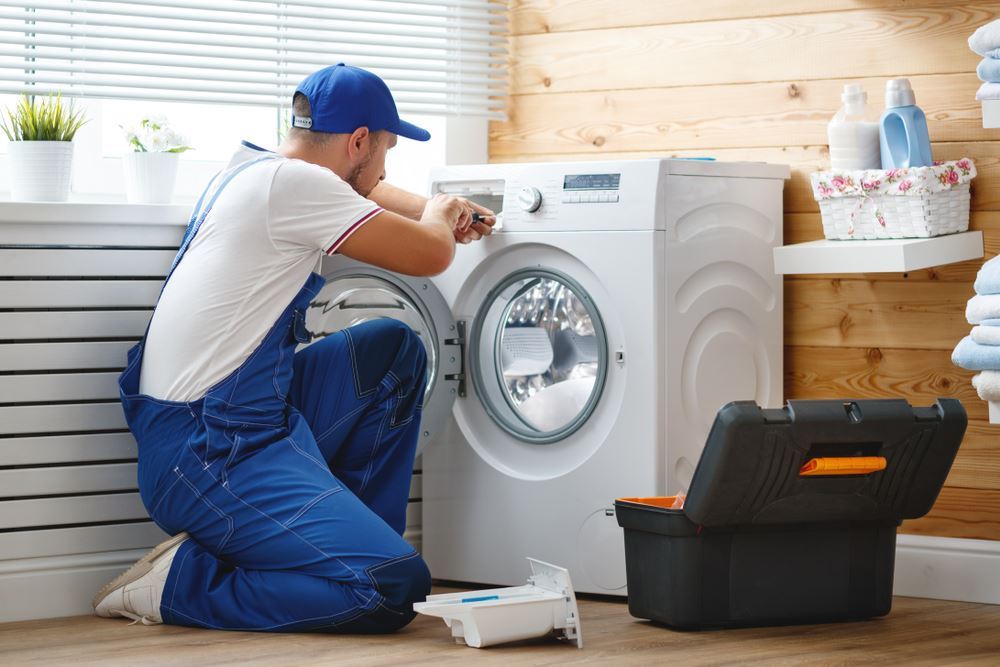
Do you know how to repair a dishwasher? How about a washing machine? If you’re like most people, the answer is probably no. Appliance repair can be daunting, but it doesn’t have to be. This blog post will explore the top 7 appliance repair tips. These tips will help you get the job done quickly and efficiently, from troubleshooting your fridge to fixing a broken dryer. So whether you’re dealing with a minor issue or a major repair, read on for everything you need to know.
Don’t ignore strange noises coming from your appliances.
If you start to notice strange noises coming from any of your appliances, it’s essential to take note and not ignore them. These noises could indicate a bigger problem that, if left unchecked, could lead to a complete breakdown of the appliance.
Some common appliance repair issues that can cause strange noises to include:
–Worn-out bearings: If your washing machine or dryer starts to make loud grinding noises, the bearings will likely wear out. Replacing the bearings is a relatively simple repair that can extend the life of your appliance.
–Loose parts: If you hear rattling or banging coming from your dishwasher, it could be that some parts have become loose. Tightening up any loose screws or bolts should do the trick.
–Dirty filters: Many appliances have filters that need to be cleaned regularly (usually once per month). If your filter is dirty, it can restrict airflow and cause all sorts of problems, including strange noises.
Don’t try to repair an appliance if you don’t know what you’re doing.
If you don’t know what you’re doing, don’t try to repair an appliance. To begin with, you could end up causing more damage than there was, and that could cost you a lot of money in repairs. Furthermore, you could seriously injure yourself if you don’t know how to properly use tools or take apart an appliance. So, unless you’re absolutely confident in your ability to fix the appliance, it’s best to leave it to the professionals.
Unplug the appliance before attempting any repairs
Unplugging the appliance before attempting any repairs is important to avoid electrocution. Even if the appliance is turned off, there may still be live electrical components that can pose a risk. Once the appliance is unplugged, you can safely proceed with your repair.
Check for loose parts before trying to fix an appliance.
If your appliance is not working correctly, you should first check for any loose parts. If there are any loose parts, tighten them before fixing the appliance. This will help to ensure that the appliance is properly fixed and will also prevent any further damage from occurring.
Always have a backup plan in case your appliance breaks down.
If your appliance breaks down, always have a backup plan in case you need to repair it. A backup plan will ensure that you can continue using your appliance and avoid costly repairs. Here are some tips on how to create a backup plan:
1. Always have a spare parts kit on hand. This kit should include all of the necessary parts to repair your appliances, such as filters, gaskets, and hoses.
2. Know where to find replacement parts. If you don’t have a spare parts kit, you’ll need to know where to find replacements for the broken parts. Many appliance stores sell replacement parts, or you can order them online from the manufacturer.
3. Be familiar with the appliance’s manual. Knowing how your appliance works will help you troubleshoot problems and make repairs more easily. The manual will also contain instructions on how to replace broken parts.
4. Have a professional repair person on call. If you’re not comfortable making repairs yourself, have a professional appliance repair person on call who can do the job for you.
Be prepared to pay for professional repairs if necessary.
If your appliance breaks down, you may be tempted to try to fix it yourself. However, unless you are a qualified repair technician, it is best to leave repairs to the professionals. Trying to fix an appliance yourself can void the warranty and potentially cause further damage. Therefore, it is always best to consult a professional repair service before attempting any repairs yourself.
Know when it’s time to replace an appliance instead of repairing it
If your appliance is more than ten years old, it might be time to start shopping for a replacement instead of paying for repairs. Appliances have come a long way in the last ten years. Even if your appliance is still working, it might not work as efficiently as a newer model. If you’re spending more on repairs than the appliance is worth, it’s time to start thinking about replacing it.

